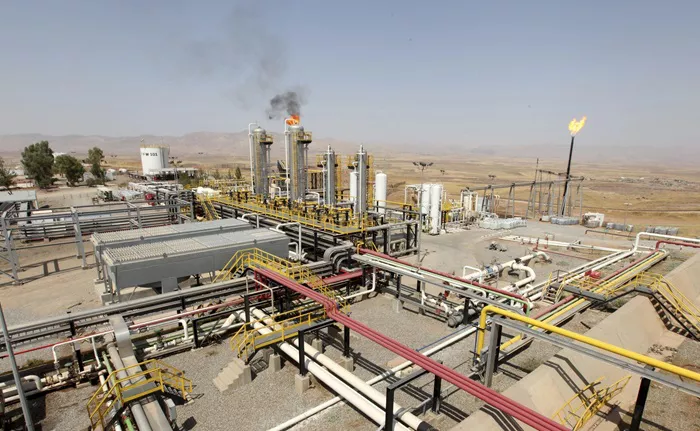Over two years have passed since the Federal Government of Iraq (FGI), based in Baghdad, imposed a sweeping embargo on the Kurdistan Region of Iraq’s (KRI) independent oil exports. The move has significantly undermined the semi-autonomous Kurdish region’s financial independence and deepened tensions over sovereignty and control in one of the world’s most strategically vital energy hubs.
The official justification for halting Kurdish oil exports was a ruling by the International Chamber of Commerce (ICC), which ordered that shipments not resume until Turkey paid US$1.5 billion in damages to Baghdad for previously unauthorized exports via the KRI. However, analysts and regional observers argue that the real motive lies in Baghdad’s broader strategy to erode Kurdistan’s autonomy and fully reintegrate the region into Iraq’s centralized political framework.
This strategy was clearly signaled early in Prime Minister Mohammed Al-Sudani’s tenure when he introduced a new draft Unified Oil Law. The legislation, he explained, would consolidate oil and gas oversight under Baghdad’s authority across all of Iraq—including the Kurdistan Region—describing the measure as a vital instrument for “Iraq’s unity.”
Energy, Geopolitics, and Superpower Rivalries
The KRI’s oil exports are not just a domestic issue—they are at the heart of a global geopolitical contest. Iraq possesses enormous oil wealth, officially estimated at 145 billion barrels of proven crude reserves, making it the fifth-largest holder of such reserves globally. Unofficial estimates, however, suggest that Iraq could sit atop much more—potentially exceeding 215 billion barrels when undiscovered resources are considered.
Notably, these figures often exclude the full potential of the Kurdistan Region. Initial estimates placed the KRI’s proven reserves at 4 billion barrels, but this has since been revised upwards by the Kurdistan Regional Government (KRG) to approximately 45 billion barrels—still considered a conservative figure, especially given limited exploration prior to 1962 and the rapid advancement in extraction technologies since then.
Beyond its resource wealth, Iraq holds immense geopolitical significance. For the United States and its allies, Iraq is a strategic corridor connecting the Asia-Pacific with Europe. For China and Russia, the country is a crucial piece in the emerging Shia Crescent of Power, bolstered by Iran and opposed to the Sunni Arab bloc led by Saudi Arabia. These overlapping interests have turned the battle over Kurdistan into a proxy front in the larger struggle for regional influence.
According to a senior source close to the European Union’s energy security apparatus, Western powers are keen to sever KRI’s ties with Chinese, Russian, and Iranian companies—particularly those linked to Iran’s Islamic Revolutionary Guard Corps. The objective, the source explained, is to use the region as a Western-aligned stronghold for future infrastructure and investment initiatives, expanding influence throughout Iraq.
This approach is already taking shape. France’s TotalEnergies has signed a US$27 billion agreement in southern Iraq, including the critical Common Seawater Supply Project. Meanwhile, BP is negotiating a US$25 billion investment package across five major oil fields in the north. In tandem, U.S. and Israeli interests view the KRI as a crucial intelligence outpost for monitoring Iran.
Conversely, China and Russia support Baghdad’s effort to subsume Kurdistan, seeing it as a means of removing Western influence from Iraq altogether. “By keeping the West out of energy deals, the end of Western hegemony in the Middle East becomes inevitable,” a senior Russian political source told.
Legal Ambiguity Fuels the Conflict
At the heart of the dispute lies a legal quagmire. Iraq’s 2005 Constitution offers no definitive resolution to the competing claims over oil revenues. The KRG cites Articles 112 and 115 to justify its authority over fields not in production at the time of the constitution’s enactment, asserting that unassigned powers fall to the regions. Furthermore, it argues that in any legal ambiguity, the law of the region should take precedence.
Baghdad, however, leans on Article 111, which states that oil and gas resources belong to all Iraqis and should be administered centrally, through the State Organization for Marketing of Oil (SOMO).
This constitutional stalemate has effectively internationalized the issue. In the absence of legal clarity, global power dynamics are increasingly shaping the region’s future.
China’s Lead and the Western Counteroffensive
China currently holds a commanding presence in Iraq’s oil sector. It manages more than a third of Iraq’s proven reserves and is responsible for over two-thirds of its production—around 3 million barrels per day. Chinese firms maintain direct stakes in approximately 24 billion barrels and have laid down infrastructure that tightly integrates energy development with broader strategic objectives.
However, the U.S. and its allies are rapidly mobilizing. On May 19, American firms HKN Energy and WesternZagros signed deals to develop the Miran gas field and the Topkhana oil and gas field in the Kurdistan Region. U.S. Energy Secretary Chris Wright underscored the broader intent of these moves, saying they are part of a larger strategy to limit Iran’s—and by extension, China’s and Russia’s—influence in Iraq through targeted commercial partnerships.
A Region at a Crossroads
As legal arguments falter and diplomatic channels narrow, the future of the Kurdistan Region is increasingly being shaped by great-power rivalry. With China currently holding the upper hand in terms of ground presence and investment, the West is mounting a counter-effort, bolstered by major oil deals and strategic alignment with Kurdish authorities.
Whether the KRI retains its autonomy or is reabsorbed into Baghdad’s fold may ultimately be decided not in the courts or parliaments, but in the broader theater of global energy politics.


